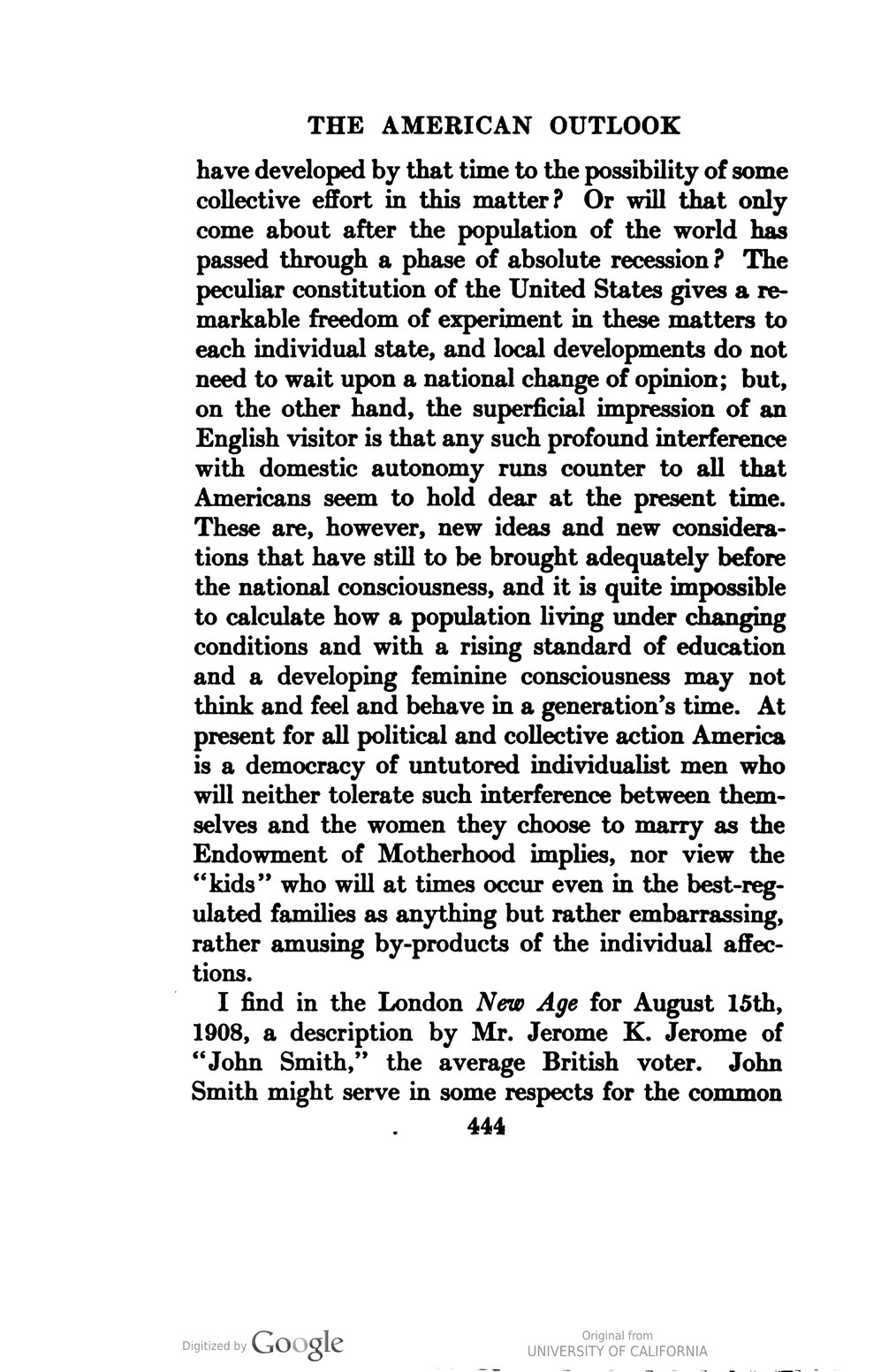THE AMERICAN OUTLOOK
have developed by that time to the possibility of some collective effort in this matter? Or will that only come about after the population of the world has passed through a phase of absolute recession? The peculiar constitution of the United States gives a remarkable freedom of experiment in these matters to each individual state, and local developments do not need to wait upon a national change of opinion; but, on the other hand, the superficial impression of an English visitor is that any such profound interference with domestic autonomy runs counter to all that Americans seem to hold dear at the present time. These are, however, new ideas and new considerations that have still to be brought adequately before the national consciousness, and it is quite unpossible to calculate how a population living under changing conditions and with a rising standard of education and a developing feminine consciousness may not think and feel and behave in a generation's time. At present for all political and collective action America is a democracy of untutored individualist men who will neither tolerate such interference between themselves and the women they choose to marry as the Endowment of Motherhood implies, nor view the "kids" who will at times occur even in the best-regulated families as anything but rather embarrassing, rather amusing by-products of the individual affections.
I find in the London New Age for August 15th, 1908, a description by Mr. Jerome K. Jerome of "John Smith," the average British voter. John Smith might serve in some respects for the common
444
